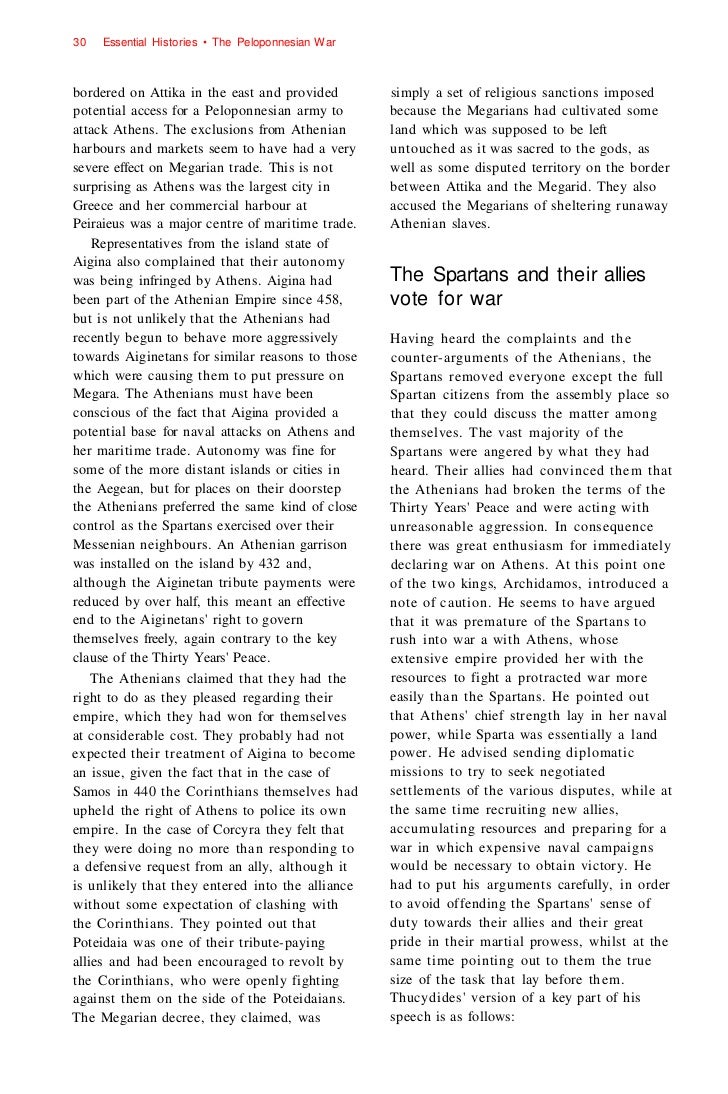
The regional instability in Greece in the late 6th century BCE brought about the Peloponnesian League (c. The tough military training in Sparta, which started from the age of seven and was known as the agōgē, resulted in a professional hoplite army capable of great discipline and relatively sophisticated battle manoeuvres which made them feared throughout Greece, a fact perhaps evidenced by Sparta's notable lack of fortifications for most of its history. Whatever the politics, the practical consequences of the League was that Athens' navy could strike anywhere, especially after rival sea-power Aegina was taken, and it caused significant supply problems to several cities throughout the war, notably Corinth.

Starting with the repression of Naxos, however, the League swiftly came to resemble an Athenian empire rather than a collection of equal allies, a process confirmed by the moving of the treasury to Athens in 454 BCE. The practical consequence of the Delian League was that Athens' navy could now strike anywhere. In fact, though, hostilities broke out elsewhere when Thebes attacked Plataea, an ally of Athens, and in 431 BCE the Peloponnesian army led by the Spartan king Archidamos invaded and ravaged Attica. The Athenians, cajoled by Pericles, refused but the Spartans withheld from formally declaring war, perhaps due to their state of unreadiness for another long conflict. Sparta, a long-time ally of Megara, asked Athens to repeal the decree as it would make Megara wholly dependent on Athens.

These prevented Megara from using any port of Athens or her allies, effectively imposing a trade embargo. Athens went ahead and laid siege to the city anyway, shortly after, also issuing the Megarian Decrees. The Poteidaian's asked for Sparta's protection and received a promise of assistance. Athens wanted timber and minerals from Thrace and so demanded Poteidaia remove their fortifications.

Greek Civilians became much more involved in warfare & the entire citizen bodies of city-states could be wiped out.Ī flashpoint in Spartan-Athenian relations was Poteidaia in 432 BCE.


 0 kommentar(er)
0 kommentar(er)
